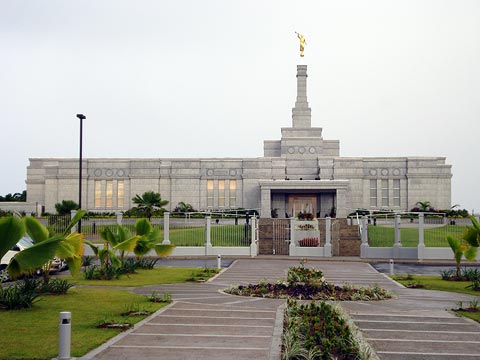
Lacee Curtis
Fiji’s estimated population for the year 2013 is 896,758. The country’s main ethnic groups are 57.3 percent Fijian, 37.6 percent Indian (or Indo-Fijian), 1.2 percent Rotuman, and 3.9 percent other groups such as Chinese, European, and other Pacific Islanders.
Estimates place 64 percent of the population as Christian, 28 percent as Hindu, and 6 percent as Muslim, and the remaining 2 percent various other religious denominations. Most Fijians are Christian. About 20 percent of the Indian population is Muslim, 74 percent is Hindu, and a remaining 6 percent is Christian. The small Chinese community is 60 percent Christian, and the European community is predominantly Christian.
According to the 2007 census, with 290,000 members, the Methodist Church claims about one-third of the country’s population and is the largest Christian denomination. With the support of the majority of the country’s chiefs, the Methodist Church continues to remain influential in the Fijian community. Other Protestant groups are 5.7 percent Assembly of God, 3.9 percent Seventh-Day Adventist, 0.8 percent Anglican, and 10.4 percent “other” groups. The Roman Catholic Church also has a following of 9.1 percent.
The 2007 census also indicated that 27.9 percent of the population was Hindu and 6.3 percent was Muslim. Small but active communities of Bahais and Sikhs also practice their religions in Fiji.
Generally the government respects religious freedom. And despite the role of religion continuing to be a sensitive political issue, this respect improved slightly during the year 2012. Government officials partially lifted a 2009 ban on the Methodist Church’s Annual General Conference and on the quarterly meetings of the Methodist Church’s 52 divisions. Ultimately it granted the Methodist Church a three-day permit for its conference. Despite the lifting on bans, the Government maintains tight restrictions on what can be discussed at these meetings.
In October 2011, the government lifted a requirement that all church meetings other than regularly scheduled Sunday services have police permits. In addition, the police stopped requiring meeting permits for Hindu temples that were not registered with the Shree Sanatan Dharam Pratinidhi Sabha of Fiji, a Hindu religious body.
Societal respect for religious freedom in Fiji is more complex. Local authorities reported and investigated one sacrilege case in 2012. Thieves vandalized a Hindu temple and desecrated the temple’s prayer hall and worship ornaments.
Some religious groups seen as “outside the mainstream” encountered isolated problems when trying to establish congregations in villages and on outer islands. Since most Fijians are Methodists or members of the Assembly of God, new Pentecostal denominations faced difficulties while proselytizing and establishing congregations in these areas.
There appears to be no specific prohibitions on the proselytizing activities of churches. Citizens have the right to manifest and practice their religion, both in public and in private. Many Christian denominations have missionaries active in Fiji. These Christian missionary organizations participate in social welfare, health, and education. Adventist, Anglican, Catholic, The Church of Jesus Christ of Latter-day Saints, Hindu, Methodist, Muslim, and other communities operate schools and colleges. In addition, Hindu and Muslim communities operate numerous religious and cultural organizations. The government does not subsidize these organizations.
The Commission presented a draft constitution to Fiji’s government on 21 December 2012. However, the draft was not officially released to the public. Fiji police confiscated all printed copies of the draft and burned the printing press in front of the Commission’s chairman Professor Yash Ghai. Eventually a leaked copy of the 2012 Commission Draft was released online in early 2013.
Citing concerns that the Commission was working with opposition factions, Prime Minister Bainimarama announced that the government would draft its own constitution. On 21 March 2013, the Prime Minister announced that the constitution would not be debated by the Constituent Assembly. Instead, the draft would be open for public comment until 30 April 2013. The Prime Minister stated that he hoped the draft would be finalized by June 2013. In fact, the government completed its drafting of the constitution in late August, 2013, and released it to the public. On September 6, 2013, the President of Fiji formally assented to the new constitution. The constitution came into effect immediately. National elections, under the new constitution, will be held in September, 2014.
This report is taken from Republic of Fiji: Law and Religion Framework Overview. Please see the entire report for more information.